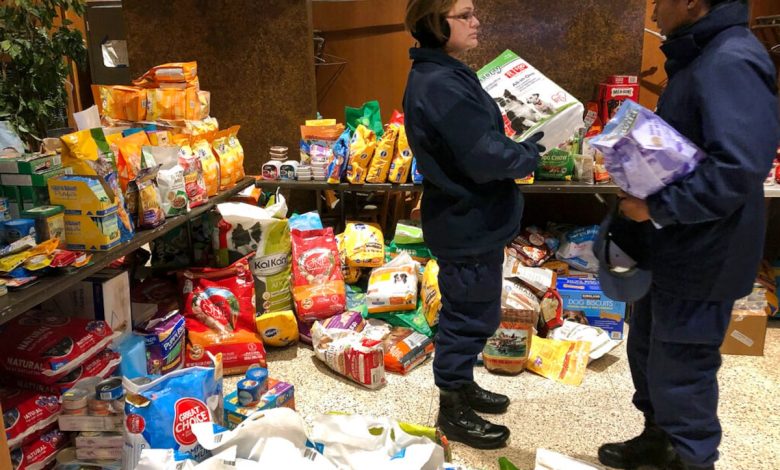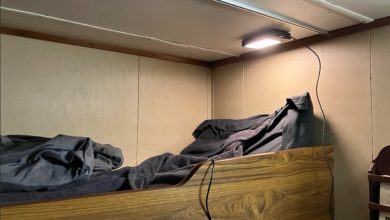Shutdown causes turmoil for some military families’ food assistance

Families across the country are facing a Nov. 1 cutoff of key food assistance because of the government shutdown, including military families who find themselves in a variety of different situations depending on where they live.
The good news for about 10,000 military families using WIC Overseas is their benefits have experienced no disruption, and they won’t be affected if the shutdown continues into November. That program, which is modeled after the U.S. Department of Agriculture’s Special Supplemental Nutrition Program for Women, Infants and Children, is operated through a contract and funded by the Defense Department. It’s separate from the state-run WIC programs under the Agriculture Department.
But in the U.S., a number of states have warned that funding will run out at the end of October for WIC, which would affect military families using the benefit in those locations.
WIC provides benefits for healthy foods and infant formula, as well as nutrition education and breastfeeding support for pregnant women, new mothers and young children.
States days away from cutting off WIC, SNAP
The state WIC programs received temporary emergency funds from the Trump administration earlier this month to stabilize the program through October 31, but that funding is being rapidly depleted, according to the National WIC Association. That association led an effort with 44 other national organizations that signed on to a letter urging the administration to provide an additional $300 million in emergency funds for WIC to sustain the program through the first two weeks in November.
Exact numbers have traditionally been difficult to track, however. Many advocates contend that more military families would be eligible for WIC if they would apply.
WIC’s eligibility criteria is more lenient than with SNAP, in which the Basic Allowance for Housing is used in calculating an applicant’s income. Adding in the BAH makes it more difficult for military families living off post to qualify for SNAP.
RELATED
Concerned about military families needing SNAP, Congress authorized a benefit implemented over the last few years called the Basic Needs Allowance. It provides a monthly stipend to boost military families’ income beyond SNAP eligibility, based on income and household size.
But many of those military families who do qualify for SNAP may see those federal benefits disappear come Nov. 1.
“Bottom line, the well has run dry. At this time, there will be no benefits issued November 1” for SNAP, the Department of Agriculture posted on its website.
SNAP provides food benefits to low-income families to supplement their grocery budget so they can afford nutritious food. A number of states have posted information about the looming cutoff, including several states with large military populations.
In Virginia, Gov. Glenn Youngkin declared a state of emergency to provide emergency hunger relief for Virginians in response to the looming cutoff of SNAP benefits. Other states, like North Carolina, are also exploring options to maintain the benefit if they don’t receive federal funding.
Contractor fronts money for WIC Overseas
The continuation of WIC Overseas “is a bit of good news at least for the short term,” said Eileen Huck, acting director of government relations for the National Military Family Association.
The Defense Health Agency told Military Times that the Treasury Department couldn’t reimburse the WIC Overseas contractor after Oct. 1. However, that situation hasn’t affected the ability of WIC Overseas to operate or pay for drafts used to purchase WIC-approved foods, said Virginia Carrillo Johnson, who works for the contractor, Cherokee Nation Aerospace and Defense, as the WIC Overseas program manager.
“At this time, WIC Overseas will not be affected if the shutdown continues into November,” Johnson. said. Commissaries are continuing to receive payment for WIC-approved foods as normal, she added.
While that contractor continues to pay for all WIC Overseas drafts, the funds are provided by Cherokee Federal and other internal funding, she said. Cherokee Federal is their federal contracting division.
“We will seek reimbursement from [Defense Health Agency] once the government shutdown is over and [fiscal 2026] funds are available,” Johnson said.
The WIC Overseas program is fully funded through April 2026. Cherokee Federal “plans to continue supporting and funding the program until the government reopens,” she said.
Karen has covered military families, quality of life and consumer issues for Military Times for more than 30 years, and is co-author of a chapter on media coverage of military families in the book “A Battle Plan for Supporting Military Families.” She previously worked for newspapers in Guam, Norfolk, Jacksonville, Fla., and Athens, Ga.
Read the full article here









